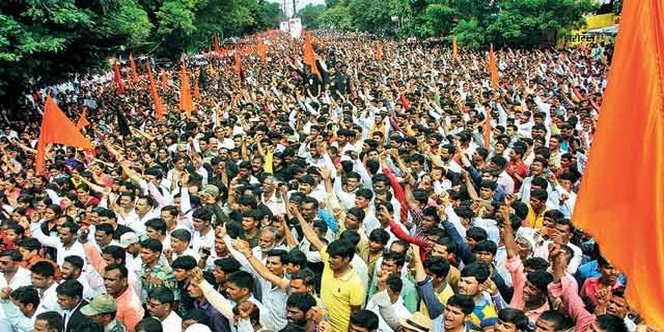Analysis
SC Subverts Maharashtra’s Latest Attempt to Postpone Local Elections
With elections pending in nearly 2,500 local bodies, SC raps Maharashtra for abdicating its constitutional duty again.
The saga of implementing OBC reservations in Maharashtra’s long-pending municipal corporation elections continues. On May 4th 2022, the Supreme Court delivered an order to subvert the Maharashtra government’s latest attempt at delaying the elections.
On March 4th 2022, the Maharashtra State Election Commission (SEC) informed the Supreme Court that 2,486 local bodies have remained defunct without elections—many for upto two years.
Despite repeated Supreme Court orders for immediate elections since last year, the Maharashtra government has prioritised buying more time to collect caste data. This is needed in order to provide OBC reservations in these elections.
Maharashtra Government Tries To Take Over SEC’s Delimitation Power
On March 7th 2022, the Maharashtra Legislative Assembly passed two bills to amend two legislations passed in the 1960s governing urban and rural local elections. Through these Amendments, the Maharashtra government made itself responsible for the delimitation process—and took over the SEC’s power to redraw electoral wards.
This poses a problem since the SEC has nearly completed the delimitation process for the elections, which have been pending since 2019. If the Maharashtra government takes over now, it will need more time to redraw wards, delaying the elections by another few months.
SC: Rectify Rule Of Law Breakdown in Maharashtra Due to Election Delays Within Two Weeks
Article 243 of the Constitution of India, 1950, places a statutory obligation on the State government to conduct local elections every five years. The Supreme Court stated on May 5th that even if the State government wished to take over the delimitation process, it cannot do so at this late a stage. Justice A.M. Khanwilkar commented that the staggering number of pending elections showed the Maharashtra government’s abdication of its constitutional responsibility.
Justice Khanwilkar stated that local administrators would have no authority to run their localities without an elected local government. The Bench, also comprising Justices Abhay S. Oka and C.T. Ravikumar, described the situation in Maharashtra as bordering on a ‘rule of law breakdown’.
Stating that delimitation was a continuous process that could take place after the pending elections were completed, the Bench ordered the SEC to announce elections without further delays within two weeks.
SC: Elections Cannot Be Delayed To Buy Time For Reservations Data
The Maharashtra government argued that under Article 243, it had a constitutional responsibility to notify reservations according to contemporary data for all elections. Senior Advocate Shekhar Naphade argued that Maharashtra would be violating minority rights if it conducted the 2,400 plus pending elections without allocating reserved seats.
On December 18th 2021, the Supreme Court found that Maharashtra’s policy for 27% OBC reservations in the elections did not meet the Court’s requirements for contemporary data on the underrepresentation of minority groups. To ensure that elections were not further delayed while the government collected this data, the Supreme Court ordered Maharashtra to reallocate the reserved seats to the General category and conduct the elections immediately. The Maharashtra government attempted to resurrect its 27% OBC reservations scheme again in March 2021, by submitting a report containing fresh data. The Supreme Court found the new report lacking as well, ordering Maharashtra to reallocate the reserved seats and complete the elections once again.
Responding to Mr. Naphade, Justice Khanwilkar stated that the State government should have started the process of collecting data much sooner if it was committed to providing reservations. Further delays were unacceptable to the Bench.
This problem of collecting inadequate data on minority representation is not peculiar to Maharashtra. The Union and various State governments have struggled to meet the Court’s data requirements to justify reservation policies, not just in elections but in education and employment as well. Similar problems of elections delays persist in other States—notably in Jharkhand and Madhya Pradesh. The Supreme Court will hear Solicitor General Tushar Mehta representing the Madhya Pradesh government on May 6th, 2022. Mr. Mehta is expected to argue that the State government should be given some more time to collect caste data.




